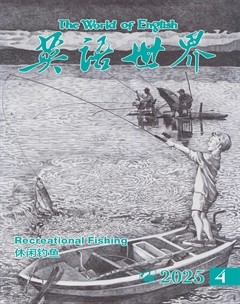“When we could no longer hear Captain singing we all grew very cheerful and made a banquet out of our year’s provisions, as we all hoped to be home again in under three weeks. We had three great banquets every day for a week—every man had more than he could eat, and what was left over we threw on the floor like gentlemen. And then one day, as we saw San Huëgédos, and wanted to sail in to spend our money, the wind changed round from behind us and beat us out to sea. There was no tacking against it, and no getting into the harbour, though other ships sailed by us and anchored there. Sometimes a dead calm would fall on us, while fishing boats all around us flew before half a gale, and sometimes the wind would beat us out to sea when nothing else was moving.
“当再也听不到船长的歌声时,所有人都变得很高兴。我们用一年份的粮食开了一场宴会,因为我们都盼望能在三个星期之内回家。在整整一周里,我们每天开三次大宴——每个人都有吃不完的食物,我们像绅士一样把剩下的扔到地上。后来有一天,当我们看见圣休杰多斯时,就想开过去,上岸花花钱,这时后面的风却转了向,把船吹往大海。旁边驶过的船都能正常地航行和在港口下锚,我们的船却丝毫不能变换航向,也不能进港。有时,我们陷入一阵死一般的平静,而周围的渔船却在强风当中飞驰;有时,其他的东西一动不动,风却会将我们的船吹到远海。
“It was just the same at Norenna.
“在诺任那,情况也是一样。
“We kept close together now and talked in low voices. Suddenly poor old Bill grew frightened. As we went all along the Siractic coast-line, we tried again and again, and the wind was waiting for us in every harbour and sent us out to sea. Even the little islands would not have us. And then we knew that there was no landing yet for poor old Bill, and every one upbraided his kind heart that had made them maroon Captain on a rock, so as not to have his blood upon their heads. There was nothing to do but to drift about the seas. There were no banquets now, because we feared that Captain might live his year and keep us out to sea.
“我们聚在一起,低声交谈。





